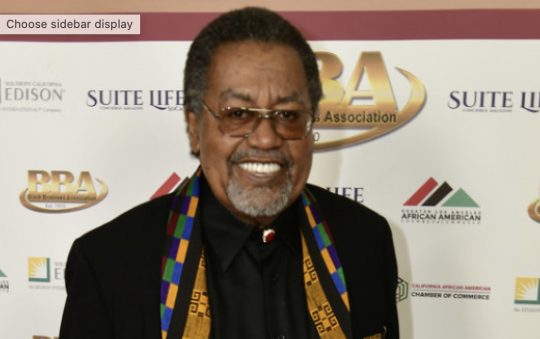
Over the past few decades, California has prided itself on being a national leader in setting ambitious environmental goals and policies, from reducing carbon emissions to strengthening recycling and furthering the circular economy. Yet, when it comes to one of the state’s most pressing challenges—water quality and safety—California’s track record is less than successful.
Given the Golden State’s long standing water quality issues, it is all the more troubling that Governor Gavin Newsom recently vetoed SB 366, also known as the California Water Plan: Long-Term Supply Targets, legislation that sought to address this inequity. As California law states, clean water is a fundamental human right, and lawmakers cannot continue to ignore the glaring challenges facing the state’s water systems and the communities they serve.
Today, nearly a million Californians are exposed to unsafe drinking water from almost 400 water systems that fail to meet the state’s standards for ‘safe and reliable’ water. Collectively, California’s water infrastructure has accumulated a broad spectrum of health and safety violations, including those for dangerous chemicals, bacteria, taste, and even odor. The brunt of these failures disproportionately affects minority and economically disadvantaged communities. Statewide, over two-thirds of California’s failing water systems primarily serve these vulnerable population groups.
Senate Bill 366, authored by Sen. Anna Caballero, could have been a crucial step toward solving the state’s water quality issues. The bipartisan bill aimed to confront California’s water crisis by requiring the state to follow through on water supply solutions, setting long-term water supply targets to 2050, such as adding 10 million acre-feet of water by 2040 through improved storage, recycling, and conservation measures. It would have also ensured that tribes, labor, and environmental justice interests have a seat at the table in water supply and infrastructure conversations going forward.
SB 366 passed without any opposition in both the California State Assembly and the State Senate, proving that elected officials overwhelmingly support policies to address these issues. Governor Newsom’s veto delays what is a crucially important policy solution to address our state’s long-term water needs in a comprehensive and equitable way. California’s water system is aging and outdated and can no longer fulfill the demands of nearly 40 million people. Newsom himself acknowledged this fact when he stated earlier this year, “The water system in California was designed for a world that no longer exists.”
While California has long championed water conservation as a solution, this approach alone is no longer tenable. The state’s population has grown by over 10 million since 1990, and conservation efforts have left some communities particularly vulnerable during droughts. As the Public Policy Institute of California noted, Californians can only conserve so much water. A truly sustainable water infrastructure requires conservation combined with a broad increase in supply.
The failure to pass SB 366 represents a wasted opportunity to address the systemic inequalities imposed by our water systems on local communities. The bill would have helped to remedy policy gaps and give minority and economically disadvantaged communities, who are disproportionately affected by our state’s water infrastructure concerns, a seat at the table to help define future policy. The governor’s veto effectively ends this possibility.
Without SB 366, California will continue with its insufficient, piecemeal approach to water management that fails to provide equitable water security for communities struggling as a result of increasingly severe droughts and heat waves.
Governor Newsom must act to ensure that meaningful solutions to long standing water quality and safety issues are no longer ignored or delayed. The governor’s lack of urgency flies in the face of the Golden State’s reputation as an environmental leader and will only serve to jeopardize the long-term safety of California’s water supply.
Thank you for reading.
Earl “Skip” Cooper II is the Chairman of the Board and President Emeritus of the Black Business Association






